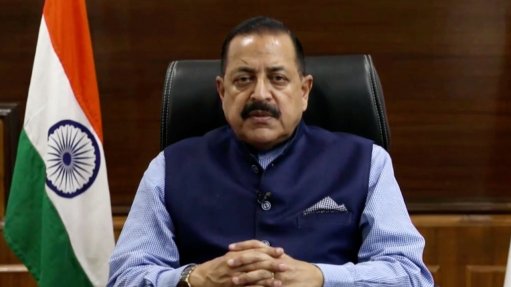
Pakistan Federal Minister for Science and Technology Shibli Faraz
Science, technology and innovation have played a key role in the global response to mitigating the Covid-19 pandemic; however, more must be done to ensure that such efforts can be translated into worldwide sustainable development and in reaching the United Nations’ (UN’s) Sustainable Development Goals (SDGs).
This was a common theme highlighted by speakers presenting during the first day of the twenty-fifth session of the UN Commission on Science and Technology for Development, on March 28.
Pakistan Federal Minister for Science and Technology Shibli Faraz said the recovery from the pandemic owes a lot to science and technology, with the rapid development of personal protective equipment, testing and other kits, medications and the development of vaccines, and innovation having been at the forefront of saving lives.
He emphasised that science, technology and innovation had been successful and pivotal in mitigating one of the biggest global health challenges of our times.
For example, he highlighted that States, enterprises and entrepreneurs globally collaborated to increase the pace and volume of technology and innovations that underpinned economic activities, such as tele-working, virtual meetings, video conferencing and distance learning.
Moreover, he noted that barely a year after the outbreak, several highly efficient vaccines were produced, with more that 1.5-billion doses already administered to date.
“These are classic examples of bringing together scientific knowledge to fight global challenges,” acclaimed Faraz.
However, he said that, by contrast, science, technology and innovation have not had the same impact and met with similar progress in achieving the UN’s SDGs. Therefore, he emphasised that more must be done to achieve a similar transformational role in this regard, by leveraging technology policies, solutions and research priorities.
He highlighted that the pandemic exposed the social and economic inequalities within countries, as well as between different countries. Moreover, he highlighted that the impact of the pandemic was felt the most by developing countries.
Therefore, moving forward, and in pursuing the SDGs, Faraz said it was essential for technology to be shared freely across national and other boundaries, so that everyone could benefit.
He emphasised that technology must not perpetuate inequalities, but rather, should be deployed to mitigate these, and for social good.
In this vein, he called for a robust global financing development framework to enable and accelerate investment in science, technology and innovation in the healthcare sector.
Moreover, he called for enhanced international collaboration in scientific research capacity building and technology transfer, describing this as vital to reduce the existing digital divide. “Frontier technology holds immense potential to shape the world in the post-pandemic era,” he emphasised.
Also, Faraz indicated that the need for equitable and affordable access to life-saving medication and vaccines globally remains imperative. This requires the urgent removal of undue restriction of international property rights and earlier waivers on patents to accelerate vaccine and medication production, he added.
Faraz also highlighted the need for increased assistance in science, technology and innovation development for developing countries, with this having stagnated in the past decade.
Faraz’s sentiments were echoed by Philippines Minister for Science and Technology Fortunato T de la Peña, who also emphasised that technology must be more available and accessible to all, with resilient infrastructure and inclusive polices.
Moreover, he called on the international community to provide an enabling environment for tech-based enterprises to flourish, with safe spaces required for collaboration between countries and diverse stakeholders.